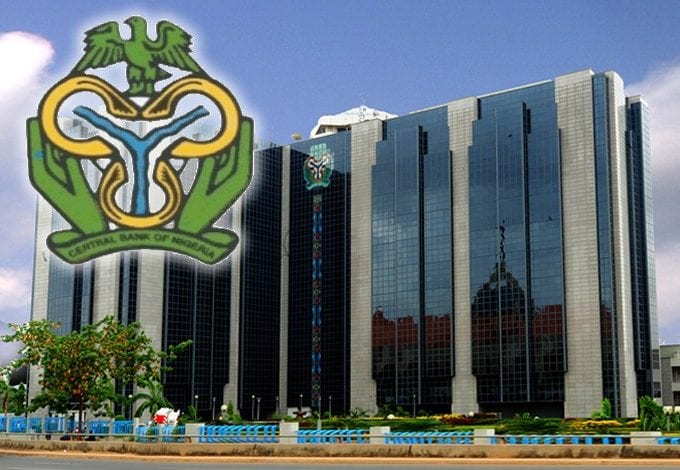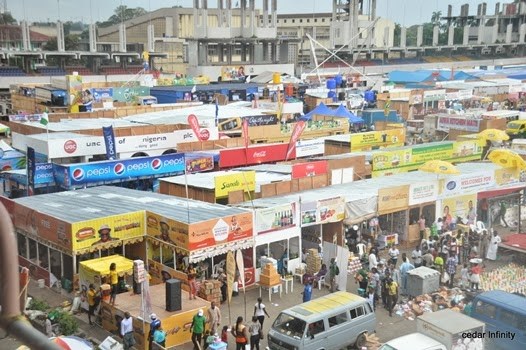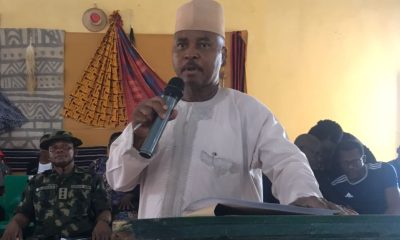Economy
CBN Plans new Round of Recapitalisation for Banks

The Central Bank of Nigeria (CBN) says it is planning to implement a new round of banking recapitalisation for the Deposit Money Banks (DMBs).
Mr Olayemi Cardoso, the CBN Governor, announced this at the 58th Annual Bankers’ Dinner organised by the Chartered Institute of Bankers of Nigeria (CIBN) on Friday night in Lagos.
Reports says that the planned recapitalisation means that DMBs will be required to raise additional capital to meet the demands of Nigeria’s economy.
Cardoso noted that President Bola Ahmed Tinubu in his Policy Advisory Council report on the national economy, had set an ambitious goal of achieving a Gross Domestic Product (GDP) of one trillion dollars by 2030, with clearly defined priority areas and strategies.
According to him, it is important that banks have a role to play in the anticipated one trillion dollars economy by 2030.
Cardoso said going by the huge developmental role the apex bank would want the banks to play in the next seven years, it had become imperative to demand their recapitalisation.
To achieve the target, Cardoso said that Nigeria needed to experience a more rapid and inclusive economic expansion.
“The administration has already commenced this journey through fiscal reforms, including the removal of petrol subsidies and the unification of the foreign exchange market rate.
“Considering the policy imperatives and the projected economic growth, it is crucial for us to evaluate the adequacy of our banking industry to serve the envisioned larger economy.
“It is not just about the stability of the financial system in the present moment, as we have already established that the current assessment shows stability.
“However, we need to ask ourselves: Will Nigerian banks have sufficient capital relative to the financial system’s needs in servicing a $1.0 trillion economy in the near future? In my opinion, the answer is “No!” unless we take action.
“Therefore, we must make difficult decisions regarding capital adequacy. As a first step, we will be directing banks to increase their capital,’’ he said.
The CBN governor also announced the approval of another round of Open Market Operations (OMOs) to mop up excess liquidity from the banking system.
OMOs are the main monetary policy instrument, through which the central bank buys or sells securities with financial institutions in the open markets, thereby influencing the amount of money in circulation and/or interest rates.
Cardoso said, “An OMO auction was recently held with a stop rate of 17.5 per cent for the one-year tenor, attracting oversubscription of N350 billion.
“Another round of OMO has been approved to further reduce excess liquidity.
“Offering N108.1 billion worth of Treasury Bills with three tenors to the investing public, which can help reduce liquidity in the banking system and support government fundraising.’’
Cardoso said the apex bank would use its monetary policy tools to keep inflation low and stable.
He said, “the Central Bank of Nigeria is committed to achieving monetary and price stability. This is not just a technical objective, but it has real-life implications for the well-being of our citizens.
“Through targeted policies, transparent market operations, and coordination between monetary and fiscal authorities, we can ensure a more stable exchange rate, control inflation, and create an enabling environment for businesses and individuals to thrive.’’
He noted that the apex bank had taken steps to improve the effectiveness of its monetary policy tools and to strengthen the transmission mechanism so that its policy decisions have a greater impact on the economy
Cardoso added that the ability of the monetary policy committee to influence the economy through its decisions had been weakened because the channels through which monetary policy was transmitted had become disrupted.
The CBN governor said the apex bank was planning to make changes to the country’s foreign exchange regulations by developing new guidelines and legislation.
He stated that banks and foreign exchange operators would be consulted before making any final decisions.(NAN
Economy
Customs Zone D Seizes Contraband Worth N110m

The Nigeria Customs Service (NCS), Federal Operation Unit (FOU), Zone D, has seized smuggled goods worth over N110 million between April 20 till date.
The Comptroller of Customs, Abubakar Umar, said this at a news conference on Tuesday in Bauchi.
He listed the seized items to include 11,200 litres of petrol; 192 bales of second hand clothing, 140 cartons of pasta, 125 pairs of jungle boots, 47 bags of foreign parboiled rice and 9.
40 kilogramme of pangolin scales.Umar said the items were seized through increased patrols, intelligence-led operations, and strengthened inter-agency collaboration.
The comptroller said the pangolin scales would be handed over to the National Environmental Standards and Regulations Enforcement Agency (NESREA) for appropriate action, while the seized petrol would be auctioned, and the proceeds remitted to the federation account.
He attributed the decrease in smuggling activities of wildlife, narcotics, and fuel to the dedication and professionalism displayed by the personnel in line with Sections 226 and 245 of the NCS Act 2023.
The comptroller enjoined traders to remain law abiding, adding the service would scale up sensitisation activities to combat smuggling.
“We remain resolute in securing the borders and contributing to Nigeria’s economic development,” he said.
The FOU Zone D comprises Adamawa; Taraba, Bauchi, Gombe, Borno, Yobe, Plateau, Benue and Nasarawa. (NAN)
Economy
Trade Tensions: Global Economy Stands at Fragile Turning Point -UN

The UN Department of Economic and Social Affairs (UN DESA) has said that the global economy stands at a fragile turning point amid escalating trade tensions and growing policy uncertainties.UN DESA, in a report published on Thursday, stated that tariff-driven price pressures were adding to inflation risks, leaving trade-dependent economies particularly vulnerable.
It stated that higher tariffs and shifting trade policies were threatening to disrupt global supply chains, raise production costs, and delay key investment decisions – all of this weakening the prospects for global growth. The economic slowdown is widespread, affecting both developed and developing economies around the world, according to the report.For instance, in the United States, growth is projected to slow “significantly”, as higher tariffs and policy uncertainty are expected to weigh on private investment and consumer spending.Several major developing economies, including Brazil and Mexico, are also experiencing downward revisions in their growth forecasts.China’s economy is expected to grow by 4.6 per cent this year, down from 5.0 per cent in 2024. This slowdown reflects a weakening in consumer confidence, disruptions in export-driven manufacturing, and ongoing challenges in the Chinese property sector.By early 2025, inflation had exceeded pre-pandemic averages in two-thirds of countries worldwide, with more than 20 developing economies experiencing double-digit inflation rates.This comes despite global headline inflation easing between 2023 and 2024.Food inflation remained especially high in Africa, and in South and Western Asia, averaging above six per cent. This continues to hit low-income households hardest.Rising trade barriers and climate-related shocks are further driving up inflation, highlighting the urgent need for coordinated policies to stabilise prices and protect the most vulnerable populations.“The tariff shock risks hitting vulnerable developing countries hard,” Li Junhua, UN Under-Secretary-General for Economic and Social Affairs, said in a statement.As central banks try to balance the need to control inflation with efforts to support weakening economies, many governments – particularly in developing countries – have limited fiscal space. This makes it more difficult for them to respond effectively to the economic slowdown.For many developing countries, this challenging economic outlook threatens efforts to create jobs, reduce poverty, and tackle inequality, the report underlines. (NAN)Economy
FG To Finalize N1.5trn Road Concession Project- Edun

The Minister of Finance and Coordinating Minister of the Economy, Mr Wale Edun, says the Federal Government will soon finalise N1.5 trillion road concession project.
Edun made the statement during a meeting with some private sector investors in Abuja on Wednesday.
He said that the government was on the verge of finalising the landmark N1.
5 trillion road concession project, launched in 2021 under the Highway Development and Management Initiative (HDMI).The minister said that the initiative aimed to involve private sector partners in the reconstruction and management of nine major highways across the country, spanning approximately 900 kilometers.
He said that the partners had almost completed all arrangements for the highways, which they would finance, rebuild, and maintain under 25-years concession agreements.
Edun said that the concessionaires were expected to recoup their investments through tolling fees.
“We met the concessionaires who have virtually concluded all the agreement arrangements for nine roads, nine major highways, which they are contracting to refinance the rebuilding of and to recover their funds from tolling fees under 25-year or so agreements.
“And we met them to iron out the remaining administrative obstacles for the kicking off construction of these roads,” he said.
Edun said that the substantial private sector investment would bridge budgetary gaps.
He added that it would also allow investors to undertake revenue-generating projects, leveraging their expertise and resources for long-term implementation and maintenance.
“Thereafter, it will be a question of signing the addendums and moving to the site.
“As you know, already the 125-kilometer Benin–Asaba Highway concession agreement has been signed. The addendum has been signed.
“All arrangements have been finalised, in fact, the ministry of works have handed over the road to the concessionaires.
“They have already started the preliminary arrangements for reconstruction of that road in place of a 10 lane highway.
“It is an investment, it’s a project and an initiative that will reduce the travel time between Benin and Asaba right up to the Niger Bridge,” the minister said.
Edun said that the Benin–Asaba Highway project, which has already commenced, is expected to reduce travel time between Benin and Asaba from four hours to one hour, significantly enhancing productivity and efficiency in the region.
He described the HDMI, launched in 2021, as a strategic programme by the federal government aimed at attracting private sector investment to improve Nigeria’s federal road network.
Edun said that the initiative seeks to address the challenges of inadequate funding and maintenance by leveraging Public-Private Partnerships (PPP) to develop and manage road infrastructure.
Under the HDMI, 12 highways were initially selected for concession, covering a total of 1,963 kilometers.
These roads include Benin–Asaba, Abuja–Lokoja, Kano–Katsina, Onitsha–Owerri–Aba, Shagamu–Benin, Abuja–Keffi–Akwanga, Kano–Shuari.
Others are Potiskum–Damaturu, Lokoja–Benin, Enugu–Port Harcourt, Ilorin–Jebba, Lagos–Ota–Abeokuta, and Lagos–Badagry–Seme roads.
The minister said that the initiative was projected to generate over 50,000 direct and 200,000 indirect jobs, contributing significantly to the country’s economic growth and development.
The Minister of Works, Engineer David Umahi who joined the meeting virtually reassured the private sector partners on the HDMI of the federal government commitment.
He said that everything possible would be done to resolve the contending issues, adding he will soon be back to address all pending issues.
One of the concessionaires, Mr Kola Karim, representing Shoreline, emphasised the need for right and enforceable documents stipulating the takeoff and handover dates, which would attract investors to invest their funds.
Other private sector partners also requested for the addendum to the original agreement to be signed that would enable toll sections of the completed highways while work was in progress on other sections.
They noted that each concessionaire has unique challenges that should be dealt with accordingly.
Also in the meeting were Minister of Budget and Economic Planning, Abubakar Bagudu, and the Director General Infrastructure Concession and Regulatory Commission (ICRC), Dr Jobson Ewalefoh




















